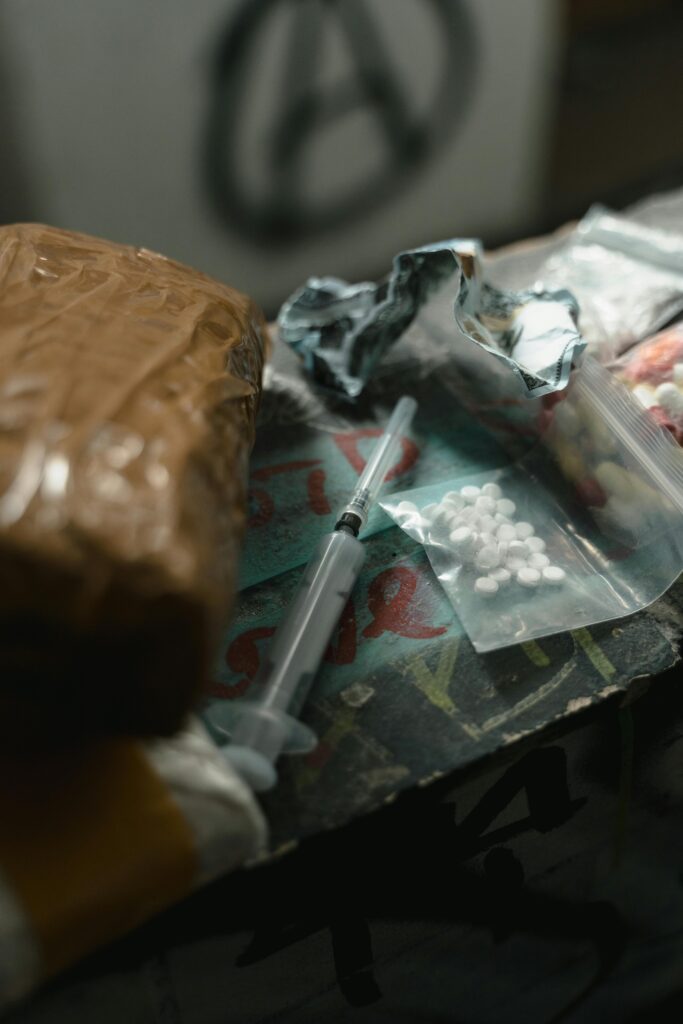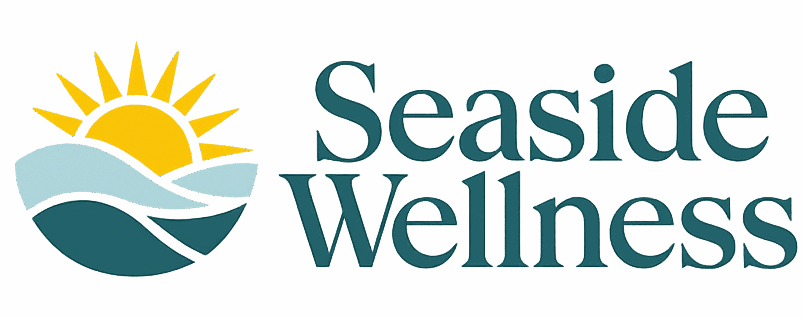Heroin addiction rehab in West Palm Beach, FL
Heroin addiction is one of the most dangerous forms of opioid use disorder, affecting thousands of families across the United States each year. Derived from morphine, heroin is an illegal opioid that creates intense euphoria followed by a rapid crash, leading to dependence, cravings, and devastating health consequences. Heroin’s powerful effects on the brain cause tolerance and physical dependence to develop quickly, making it extremely difficult to stop without professional help. Attempting to quit on your own can lead to severe heroin withdrawal symptoms, including nausea, sweating, insomnia, muscle pain, and dangerous cravings that often cause relapse. At Seaside Wellness, we provide safe, medically supervised heroin detox programs that help clients stabilize, manage withdrawal, and begin the path toward recovery.
Heroin is a highly addictive opioid that quickly causes dependence, cravings, and severe withdrawal symptoms. At Seaside Wellness, our heroin detox program and rehab provide safe, 24/7 medical care to help clients begin recovery with confidence.


Understanding heroin use and Its Impact
What is heroin addiction?
Heroin addiction, also known as heroin use disorder, is a chronic condition that develops when repeated heroin use changes the brain’s chemistry and creates both physical and psychological dependence. Heroin binds to opioid receptors in the brain, producing intense euphoria and pain relief, but these effects fade quickly, leading users to take more. Over time, tolerance builds, and the brain becomes unable to function normally without the drug.
Unlike prescription opioids, heroin is an illegal street drug often mixed with substances like fentanyl, making it especially dangerous. Even a small dose can cause overdose or death, and repeated use can damage the brain, heart, and respiratory system. According to the CDC, nearly 20% of all opioid-related overdose deaths in recent years have involved heroin, often mixed with fentanyl to increase potency. Once addicted, individuals experience powerful cravings and heroin withdrawal symptoms such as nausea, insomnia, anxiety, and severe muscle pain when they try to quit.
At Seaside Wellness in Florida, we provide specialized heroin detox programs with 24/7 medical supervision and medication-assisted treatment (MAT) when needed. Our goal is to help clients safely manage withdrawal and guide them towards long-term recovery through structured, evidence-based care programs like residential inpatient and dual diagnosis.
Signs and Symptoms of heroin use
The signs of heroin addiction may not be obvious in the beginning, but as dependence grows, the effects show up in nearly every part of a person’s life. Recognizing the signs of heroin addiction is an important step toward getting help for yourself or a loved one. These symptoms can appear physically, behaviorally, and psychologically.
Physical symptoms
- Constricted (“pinpoint”) pupils
- Drowsiness, nodding off, or sudden bursts of alertness
- Slurred speech and slowed movements
- Itching, flushed skin, or frequent scratching
- Withdrawal symptoms such as sweating, tremors, or insomnia when not using
- Track marks, bruises, or infections from injecting
- Weight loss, nausea, or frequent flu-like symptoms
Behavioral symptoms
- Secretive or deceptive behavior about drug use
- Financial problems or stealing to support drug habits
- Decline in work, school, or family responsibilities
- Neglecting responsibilities at work, school, or home
- Isolating from friends and loved ones
- Risky behaviors such as driving under the influence or unsafe injection practices
Psychological symptoms
- Intense cravings and loss of control over use
- Anxiety, irritability, or mood swings
- Memory problems or confusion
- Depression and withdrawal from enjoyable activities
- Denial about the severity of the addiction
According to the National Institute on Drug Abuse (NIDA), nearly 1 in 4 people who try heroin become dependent, showing how quickly this drug can take hold. Identifying these symptoms early and seeking professional help through a heroin detox program can be life-saving.
Understanding the Risks of using heroin
Heroin produces an intense rush of euphoria, but the consequences begin almost immediately. The short-term effects of heroin use impact both the body and brain, while long-term use can cause permanent damage and a high risk of overdose. Here are some of the most common symptoms:
Short-term effects
- Extreme drowsiness or “nodding off”
- Slowed breathing and heart rate
- Nausea, vomiting, or severe itching
- Clouded mental functioning and poor decision-making
- High risk of overdose, even with small amounts
Long-term effects
- Physical dependence and painful withdrawal symptoms
- Collapsed veins, infections, or abscesses from injecting
- Liver, kidney, and heart problems
- Brain changes that affect memory, decision-making, and mood
- Severe depression and anxiety
- High risk of fatal overdose, especially when heroin is mixed with fentanyl
The longer heroin use continues, the more severe these effects become. Many people trapped in heroin addiction experience declining health, strained relationships, and dangerous cycles of relapse. Recognizing the dangers of heroin use and seeking professional help early can prevent irreversible harm and save lives. Don’t waste time, start your recovery journey now.
Get started today
Heroin Withdrawal and Why Professional Detox Is important
Heroin dependence doesn’t just cause cravings, but changes the way the body and brain function. When use stops, the sudden absence of the drug disrupts this balance, creating powerful withdrawal symptoms that can feel overwhelming without support.
What happens during heroin withdrawal?
Heroin binds to opioid receptors in the brain, slowing pain signals and producing intense feelings of relaxation and euphoria. Over time, the body adapts and relies on heroin to function. When use stops suddenly, the nervous system rebounds into overdrive, triggering withdrawal symptoms that can range from flu-like illness to intense cravings and severe emotional distress. We see three main phases of withdrawal:
Early Withdrawal (6–12 hours after last dose):
- Anxiety, restlessness, and irritability
- Muscle aches and sweating
- Runny nose, watery eyes, and yawning
Acute Withdrawal (1–3 days):
- Nausea, vomiting, and diarrhea
- Severe muscle and bone pain
- Insomnia, chills, and abdominal cramps
- Strong cravings for heroin
Prolonged Withdrawal (up to 1–2 weeks or more):
- Fatigue and sleep problems
- Depression, anxiety, or irritability
- Lingering cravings that can trigger relapse
Because heroin withdrawal can be so difficult to endure, many people relapse without medical help. At Seaside Wellness in West Palm Beach, Florida, our heroin detox program is here to guide clients safely through every stage of withdrawal.
trust Seaside to detox safely from heroin
Because heroin withdrawal directly affects both the body and mind, it is not safe to attempt detox alone. At Seaside Wellness, our heroin detox program combines medical expertise with compassionate care to keep clients safe, comfortable, and supported. Our goal? We help clients build a strong foundation for lasting recovery.
Medical Safety
Our medical team provides 24/7 monitoring and medication-assisted treatment (MAT) when needed to reduce cravings, manage pain, and prevent complications during withdrawal.
Comfortable Environment
We offer a calm, supportive setting by the ocean where clients can recover away from daily stressors and triggers, making detox safer and less overwhelming.
Personalized Treatment
Every client receives a tailored detox plan based on their health history, addiction severity, and mental health needs, with adjustments as withdrawal progresses.
Seamless Transition to Rehab
After detox, clients move directly into Seaside’s residential care, dual diagnosis treatment, or lower levels, ensuring continuity of care and long-term support for sobriety.
Treatment Options for Heroin Addiction
Detox is the first and most important step in overcoming heroin addiction, but long-term recovery requires structured treatment that addresses both the physical dependence and the underlying issues fueling substance use. At Seaside Wellness, we provide the essential levels of care, medical detox, residential treatment, dual diagnosis care, and aftercare planning to support each stage of recovery.
Substance Abuse Residential Inpatient
Dual Diagnosis and Heroin Addiction
Heroin addiction often occurs alongside mental health disorders such as depression, anxiety, bipolar disorder, or PTSD, which is called dual diagnosis. For many people, heroin use begins as a way to self-medicate emotional pain, but over time, it worsens both the addiction and the underlying condition. This cycle can make recovery feel impossible without addressing both problems together.
According to the Substance Abuse and Mental Health Services Administration (SAMHSA), nearly 50% of people with a substance use disorder also have a co-occurring mental health disorder. Treating only one condition leaves the other unaddressed, which greatly increases the risk of relapse.
We specialize in dual diagnosis heroin treatment. Our integrated approach combines medical detox, evidence-based therapies, and mental health support to stabilize clients. By addressing both heroin addiction and co-occurring disorders at the same time, we provide the strongest path to lasting recovery.



Expert benzo addiction & Mental health rehab in Palm Beach County
Why Choose Seaside for heroin Addiction Treatment?
At Seaside, we understand the unique challenges of heroin addiction. Heroin’s intense physical dependence, painful withdrawal symptoms, and high risk of relapse require specialized care that goes beyond basic detox. Our programs are built to provide immediate safety and long-term support for those ready to break free from heroin use.
We integrated an individualized approach for each of our clients. They usually begin with safe, medically supervised heroin detox, supported by 24/7 monitoring. From there, treatment can continue with residential care, therapy, and dual diagnosis support to address both addiction and any underlying mental health conditions.
Our modern Palm Beach County facility offers a safe and private environment where clients can focus fully on their recovery. With real expert treatment and seamless transitions between levels of care, we provide the tools and structure needed for lasting sobriety.
About us
Therapies
Most frequently asked questions
What is heroin addiction?
Heroin addiction, or heroin use disorder, is a chronic disease where the brain and body become dependent on the drug. It causes intense cravings, loss of control over use, and painful withdrawal symptoms when not using. Because heroin is highly addictive, dependence can develop quickly.
What are the signs of heroin addiction?
Common signs include constricted pupils, sudden drowsiness (“nodding off”), weight loss, mood swings, secretive behavior, and financial or legal problems. People may also neglect responsibilities and continue using heroin despite negative consequences.
How dangerous is heroin withdrawal?
Heroin withdrawal is extremely uncomfortable but usually not life-threatening. Symptoms include nausea, vomiting, sweating, muscle pain, anxiety, and severe cravings. The biggest danger is relapse, which can lead to overdose if tolerance has dropped.
How long does heroin withdrawal last?
Withdrawal usually begins 6–12 hours after the last dose, peaks within 1–3 days, and can last about a week. Some symptoms, such as cravings, depression, and fatigue, may continue for weeks or months in what is called protracted withdrawal.
What happens during heroin detox?
In medical heroin detox, clients are monitored 24/7 by medical staff to manage withdrawal symptoms safely. Medication-assisted treatment (MAT) may be used to reduce cravings, stabilize mood, and make the process more comfortable.
Can you quit heroin on your own?
Trying to quit heroin without medical support is very difficult and often dangerous. Withdrawal symptoms are overwhelming, and relapse is common. Professional detox provides the safety, supervision, and support needed to begin recovery.
What are the long-term effects of heroin use?
Chronic heroin use can lead to collapsed veins, infections, heart and lung problems, liver or kidney disease, brain changes, depression, and a high risk of fatal overdose, especially when heroin is mixed with fentanyl.
What is dual diagnosis heroin treatment?
Dual diagnosis treatment addresses both heroin addiction and co-occurring mental health disorders like depression, PTSD, or anxiety. Treating both together reduces relapse risk and provides a more complete recovery path.
How long does heroin rehab take?
The length of rehab depends on the individual. Detox usually lasts a week, while residential treatment may last several weeks or months. Ongoing therapy, outpatient programs, and aftercare are recommended for long-term recovery.
Does insurance cover heroin addiction treatment?
Most major insurance providers cover heroin detox and rehab under behavioral health benefits. At Seaside Wellness, our admissions team verifies insurance quickly and explains coverage details to make treatment more accessible. Call (855) 416-5648 for a fast, free, and confidential verification.
What makes heroin different from other opioids?
Heroin is an illegal opioid often mixed with fentanyl or other substances, which makes it especially dangerous. It produces a short, intense high followed by a crash, driving repeated use and rapid dependence.
Why choose Seaside Wellness for heroin addiction treatment?
We provide specialized heroin detox with 24/7 care, MAT when needed, dual diagnosis treatment, and a seamless transition to long-term rehab. Our goal is to keep clients safe, supported, and prepared for lasting recovery.
100% confidential, free assessment
TAKE THE FIRST STEP TOWARD HEROIN RECOVERY TODAY
If you or a loved one is struggling with heroin addiction or the painful symptoms of heroin withdrawal, Seaside is here to help. Fill out the confidential form below, and a member of our admissions team will ] quickly to verify your insurance, answer your questions, and explain the safest options for heroin detox and treatment. Getting started is simple, private, and completely judgment-free.
